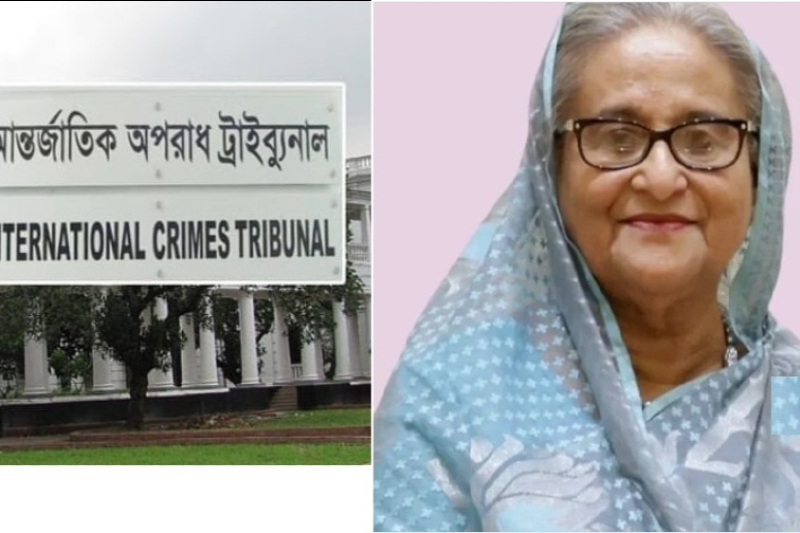
Bangladesh: The International Crimes Tribunal-1 has delivered its long-awaited verdict in the crimes against humanity case stemming from the July Uprising, sentencing deposed Prime Minister Sheikh Hasina to death on two charges.
The judgment was announced today (November 17, 2025) shortly after 12:30 pm.
The 453-page verdict is divided into six sections, and the tribunal ruled that the offences brought against all three accused had been proven beyond doubt.
In addition to Hasina, former Home Minister Asaduzzaman Khan Kamal received the death penalty on one charge, while former Inspector General of Police Chowdhury Abdullah Al-Mamun was given a five-year prison term as he appeared before the court as an approver (state witness).
The three-member bench of Tribunal-1—headed by Justice Md Golam Mortuza Mojumdar, with Justice Md Shafiul Alam Mahmood and Judge Md Mohitul Haque Enam Chowdhury as members—pronounced the verdict in a packed courtroom.
Several families of victims from the July–August unrest were also present.
The tribunal had fixed today (17 November) as the day of judgment on 13 November.
Prosecution and Defence Arguments
Chief Prosecutor Mohammad Tajul Islam led the prosecution team, joined by Prosecutor Mizanul Islam, Gazi M.H. Tamim, Faruk Ahmed, and others.
On 23 October, Attorney General Md Asaduzzaman delivered his closing arguments, referencing how world leaders in the past had faced similar accountability for crimes against humanity.
He urged the tribunal to impose the maximum punishment on Hasina and Kamal.
Chief Prosecutor Tajul Islam later responded to several points raised by the state-appointed defence lawyer. State defence counsel Amir Hossain concluded the defence’s counterarguments.
Although former IGP Chowdhury Abdullah Al-Mamun was among the accused, the prosecution left the decision on his fate to the tribunal, noting his cooperation as an approver. His lawyer, Zayed Bin Amzad, sought his acquittal.
Testimonies and Evidence
Of the 84 listed witnesses, 54 testified before the tribunal. Testimony began on August 3 this year, with the first witness, Khokon Chandra Barman, describing the July–August 2024 atrocities.
The evidence phase concluded on 8 October with the cross-examination of chief investigator Md Alamgir. Closing arguments from both sides were completed on 23 October.
The prosecution had brought five charges of crimes against humanity against the three accused, including incitement, use of lethal weapons, the murder of Abu Sayeed, killings at Chankharpul, and the burning of bodies in Ashulia.
The formal charge documents, totaling 8,747 pages, included 2,018 pages of source materials, 4,005 pages of seizure lists and documentary evidence, and 2,724 pages detailing the list of victims. The tribunal’s investigation agency submitted its report to the Chief Prosecutor on May 12.



